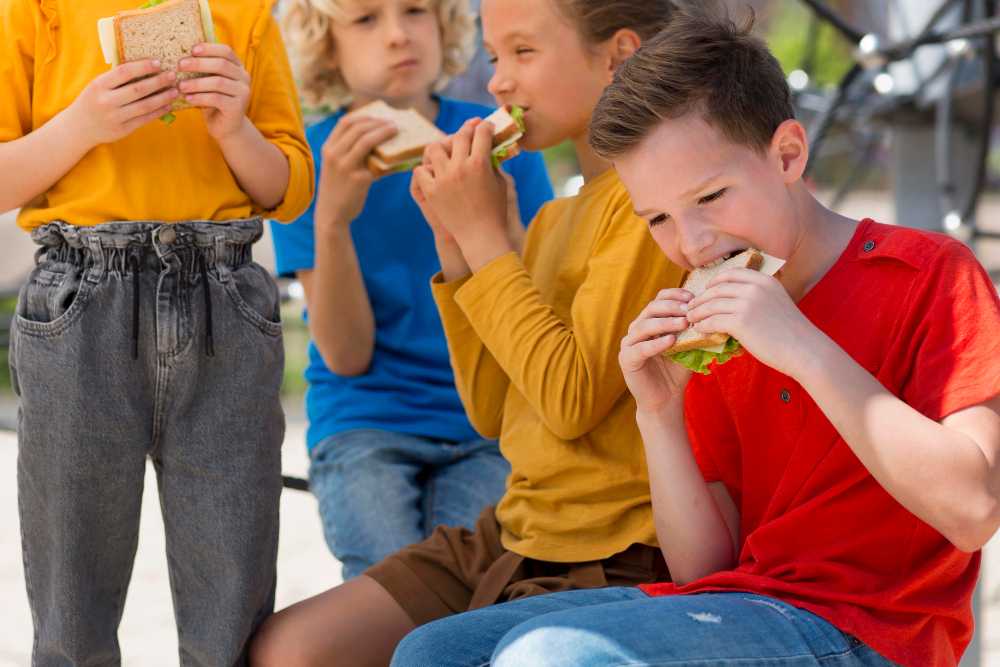Food allergies are an abnormal immune system reaction after consuming a specific food item. Some of the various common symptoms, such as swollen airways, rashes, hives, or digestive problems, are associated with allergies. When these reactions are major, life-threatening, they are known as anaphylaxis. Many people often confuse food allergies with food intolerance, but they are different; food intolerance doesn’t involve the nervous system, but food allergies do.
Allergies can be triggered by several factors, including indoor and outdoor allergens and certain foods. Make an appointment for your child with a physician or an allergist, a specialist who specializes in allergies, if you discover allergy symptoms in them.
Food allergies are often higher in children as compared to adults; although there is no cure for allergies, some children successfully outgrow their allergies as they get older.
Symptoms of food allergies:
- Nausea
- Shortness of breath
- Cough
- Stomach pain
- Dizziness
- Vomiting
- Sneezing
- Diarrhea
- Red, itchy rashes
- Red, itchy bumps
What causes food allergies in children?
In case of allergies, when you eat a particular type of food, the immune system identifies it as a foreign substance that is harmful to your body. To protect, the immune system signals the cells to release an antibody called immunoglobulin E (IgE). IgE then neutralizes the food item, also known as an allergen.
In kids, most of the food allergies are triggered by proteins in:
- Milk
- Peanuts
- Eggs
- Soy
- Tree nut
- Wheat
- Fish
- Shellfish
Risk factors:
- Family history:
When family members have food allergies, hay fever, eczema, or asthma, children are highly prone to allergies.
- Age
Food allergies are more common in toddlers and young children. As they grow old, they eventually develop these allergies as their digestive system becomes mature.
- Asthma
Asthma and food allergies often occur together, and if this happens, their effects are very severe.
- Other allergies
If your child is already allergic to a specific food item, the chances of being allergic to the other are more significant.
Precautions
- Explain the symptoms and consequences to your child
- Speak with your child’s daycare provider, school employees, the parents of your child’s friends, and other adults who interact with your child regularly. Stress that an allergic reaction can be life-threatening and must be treated now. Make sure your child understands that if they react to food, they should seek care immediately away.
- Write an action plan and make sure you discuss it well with your family members and the child.
- Teach the adults in your child’s life how to spot the signs and symptoms of an allergic response.
- Notify important people that often stay around your child about allergies
- Your plan should include instructions on how to care for your child if they have a food allergy. Give a copy of the plan to your child’s school nurse and any other caregivers or supervisors.
- Make sure your child wears a symbolic medical bracelet or chain.
- This alert includes a list of your child’s allergy symptoms as well as instructions on how others can help in an emergency.
There is no way to prevent food allergies with medicines. The goal of treatment is to stay away from the foods that trigger symptoms. It’s critical to avoid these meals, as well as other similar foods in that food group, after consulting with your child’s doctor and discovering which foods your child is allergic to. It’s critical to avoid foods in your diet that your child is allergic to if you’re nursing. Small amounts of the food allergen may pass into your breast milk and cause a response in your child.


